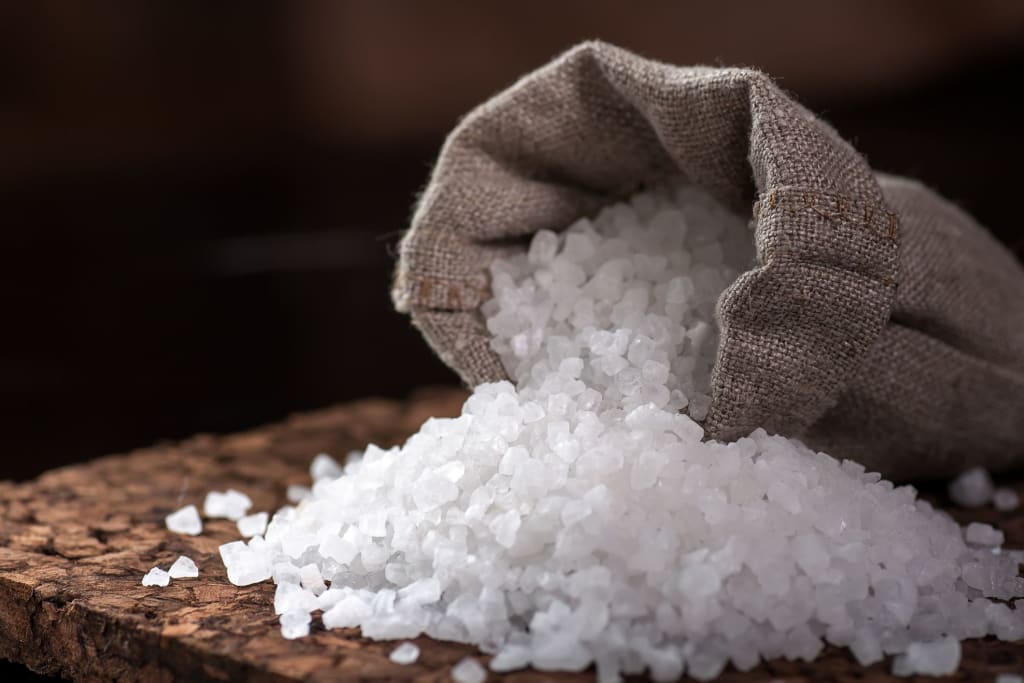Keep an eye on how much salt you consume from your food. Too much can be fatal.
This is for you!

Despite the fact that most of us are aware that we should limit our salt intake, Australians consume nearly double the daily maximum suggested.
For ages, salt has been used to preserve food, and expressions like "worth your weight in salt" reflect how important it was for keeping food to ensure survival.
Salt removes moisture from meals, preventing bacterial growth that could ruin food and create gastrointestinal problems. Salt is still used as a preservative nowadays, but it also enhances the flavor of meals.
Salt is a chemical molecule made up of sodium and chloride that is consumed in the most common form in our diet. The sodium is the more dangerous of the two elements.
THE BODY CAN BE DEVASTATED BY SODIUM.
Consuming too much salt is linked to an increased risk of high blood pressure, which is a big problem (or hypertension).
High blood pressure is a risk factor for heart disease and stroke, two of Australia's leading causes of serious illness and death. Kidney disease can also be caused by high blood pressure.
Increased sodium levels in our bodies cause changes in the kidneys, heart, neurological system, and fluid-regulating hormones.
Because sodium influences the membranes of all of your body's unique cells, it's critical to keep sodium levels under strict control. Healthy membranes allow nutrients to flow in and out of cells, as well as impulses to travel through the nervous system, such as messages from the brain to various regions of the body.
These procedures necessitate dietary salt. However, the majority of us consume far more than we require.
When we consume too much salt, our blood sodium levels rise. To keep the sodium concentration at the proper level, the body responds by pulling additional fluid into the bloodstream. Increased fluid volume, on the other hand, increases the pressure against the blood vessel walls, resulting in high blood pressure.
While there is some debate over the influence of salt on blood pressure, most research suggests that there is a progressive relationship, meaning that the more sodium you ingest, the more likely you are to die young.
SODIUM DOESN'T AFFECT EVERYONE IN THE SAME WAY.
High-salt diets have a greater impact on certain persons than others. People who are "salt-sensitive" are more likely to develop high blood pressure as a result of salt ingestion.
Older persons, those with high blood pressure already, African-Americans, those with chronic kidney disease, those with a history of pre-eclampsia (high blood pressure during pregnancy), and those with a low birth weight are among the most vulnerable.
It is critical to be aware of your blood pressure, so have it checked the next time you visit your doctor. Your blood pressure is expressed as the difference between the highest (systolic) and lowest (diastolic) readings (diastolic).
Blood pressure should be less than 120/80. If your blood pressure is over 140/90, you have high blood pressure. Your doctor may set a lower target if you have other risk factors for heart disease, diabetes, or renal disease.
REDUCING SALT INTAKE ISN'T THAT DIFFICULT.
Reducing salt in your diet is a smart way to lower blood pressure, and the first step is to avoid processed and ultra-processed foods, which account for around 75% of our daily salt intake.
Fruit and vegetables include potassium, which helps our blood vessels relax, so increasing your diet to at least seven servings per day may help lower your blood pressure.
Increasing physical exercise, quitting smoking, keeping a healthy weight, and limiting alcohol use can all help to keep blood pressure in check. If lifestyle changes alone are not enough to lower blood pressure, blood pressure-lowering medicines are available.





Comments
There are no comments for this story
Be the first to respond and start the conversation.